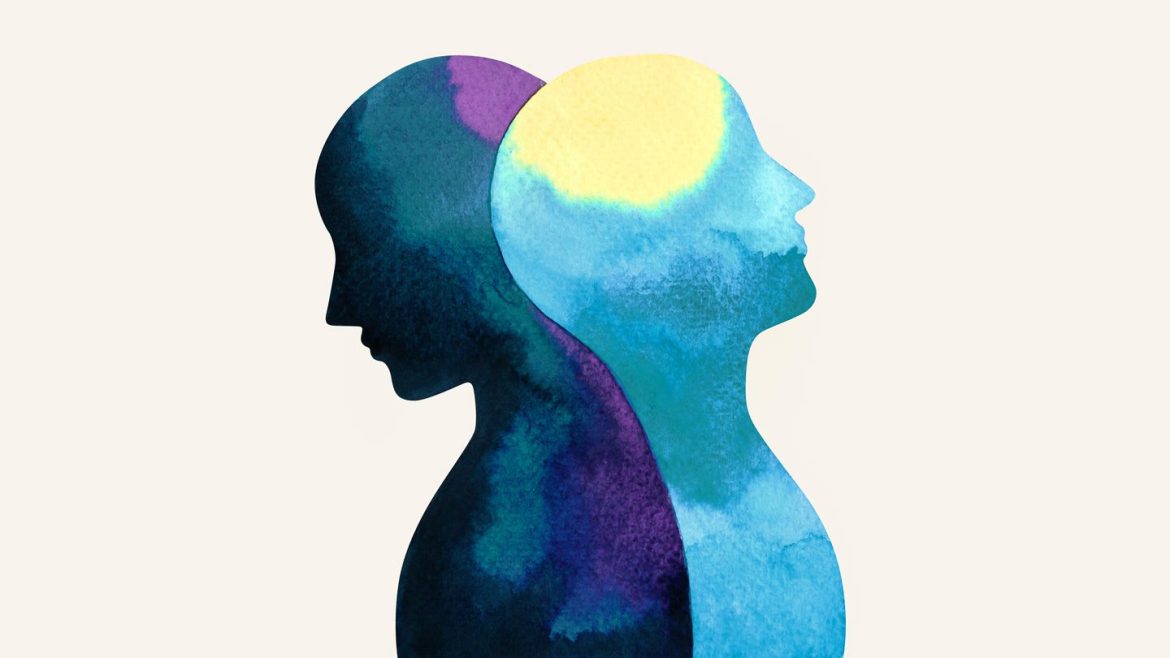
BIPOLAR DISORDER, SYMPTOMS, CAUSES AND AYURVEDIC TREATMENT
- 26 Feb, 2022
- Posted by admin
- 0 Comment(s)
OVERVIEW
- Bipolar disorder is also called Maniac depression. In this disease, the patient experiences extreme mood swings.
- Persons with bipolar disorder undergo changes in energy and activity levels which makes their day to day life difficult. However, the impact varies between different individuals.
- Normally, people experience mood changes in their daily life but bipolar disorder patients have more intense mood changes. Some people experience hallucinations, delusions and paranoia. The mood changes last for a few hours.
- Bipolar disorder can make a persons’ relations bitter with their loved ones. They find themselves unable to work in a group or a team.
- It runs in families. Most of the people having bipolar disorder have a relative suffering from the disease.
- Bipolar disorder doesn’t have a permanent cure but with treatment symptoms can be controlled. Patient learns how to manage mood episodes, thereby improving his quality of life.
- Between the mood episodes, the person’s mood may remain stable for months or years, especially if they are having a treatment.
TYPES
There are three different types of bipolar disorder:
- Bipolar disorder I
- Bipolar disorder II
- Cyclothymia
BIPOLAR I
- In bipolar disorder I, the person has experienced one episode of mania.
- Patient may have had a major depression episode before.
BIPOLAR II
- People with bipolar disorder II shows episodes of hypomania with state of depression. The depression is the dominant state.
- This is more common in women.
CYCLOTHYMIA
- Patients suffering from cyclothymia have episodes of hypomania and depression but the symtoms are less severe than those caused by bipolar I and bipolar II.
CAUSES
Bipolar disorder arises by a combination of factors. However, the exact cause is unknown. Following are the factors:
- Genetics – more common in people with first degree relative suffering from the disease like a sibling or a parent
- Biological – there is some kind of physical changes in brain leading to imbalance in neurotransmitters or hormones affecting the brain.
- Environmental – life events like sexual abuse, loss of a relative or any other traumatic event
SYMPTOMS
People having bipolar disorder show various symptoms. These symptoms vary between individuals. In some people, an episode can last for months or years. Following are the symptoms of the disease:
Mania or hypomania symptoms:
- A sense of distraction
- Impaired judgment
- Underperformance in school or at work
- Feeling bored
- Frequent absents at school or work
- Increased sexual desire
- Feeling euphoric
- Having high levels of self-confidence and self-esteem
- Having “racing” negative thoughts
Depressive symptoms:
- Feeling gloomy and hopeless
- Insomnia
- Anxiety about minor issues
- Extreme sadness
- Pain or physical problems that do not respond to treatment
- Feeling tired all the time
- Not showing interest in any work
- Lack of concentration
- Memory loss
- Irritability
- Sensitivity to noises, smells, and other things that others may not notice
COMPLICATIONS
If bipolar disorder is not treated, it can result in some serious complications which can affect patient’s life drastically. Following are the complications:
- Substance abuse such as drugs or alcohol
- Anxiety
- Increased sugar level
- Financial problems
- Poor school or work performance
- Heart problems
- Damaged relationships
- Unhealthy weight
- Suicidal thoughts
DIAGNOSIS
Diagnosis of bipolar disorder is complex as there are so many other mental conditions which are having symptoms very common with it. There are certain methods which are used by the doctors for patient’s evaluation:
Physical examination
- The doctor undergoes thorough physical examination of the patient
- He will do some diagnostic tests like blood tests or urine tests to rule out other medical problems
Psychiatric assessment
- The doctor may talk to the patient about his feelings, thoughts and behavior patterns. He can also ask patient’s family members and friends.
Mood charting
- Doctor may ask the patient to keep a daily record of his moods or sleep pattern. This will help in right diagnosis.
AYURVEDIC TREATMENT OF BIPOLAR DISORDER
- In Ayurveda, bipolar disorder comes under Unmada includes some other mental conditions also. In this, there is imbalance of vata, pitta and kapha doshas alongwith vitiation of sattva, rajas and tamas gunas.
- It affects mind, intelligence, perception and behavioral activities.
- The different methods which are used in Ayurveda for the treatment of bipolar disorder are:
- Abhyanga– massage of whole body is done with warm oils
- Swedana– steam is given to the patient which leads to removal of toxins from the body
- Nasya– patient is given medicine in the form of nasal drops
- Shirodhara– liquid (oil or decoction) is poured on patient’s forehead
- Virechana– controlled drug induced purgation
CHANDIGARH AYURVEDA CENTRE’S MEDICATIONS
Here are some of the medications which are used for the treatment of bipolar disorder:
1. Brodley Syrup
- It helps in curing hallucinations, delusions, disorganized behavior, lack of emotions, etc.
- All these herbs show antioxidant, anti-inflammatory & mind relaxant properties.
- Recommended Dose – 2 teaspoons twice a day
2. Nerve Plus Tablets
- These tablets are anti- bacterial, anti- inflammatory and immune-modulator.
- These are beneficial for migraine, stimulating nerves and increasing appetite.
- Recommended Dose: 1 tablet twice a day with normal water.
3. Stress care tablet
- It helps in relaxing the nervous system and thereby reduces the symptoms of the disease.
- It acts as an anti-depressant and relieves anxiety and Insomnia
- Recommended Dose–1 tablet twice a day
4. Brain Relaxant Churna
- It improves memory and increases the concentration by calming down the brain. It is prepared from herbs that show calming effect on brain and give the patient relaxation.
- It helps in maintaining blood sugar level,.
- It acts as an anti-depressant. It helps in dealing with hallucinations and delusions.
- Recommended Dose – 1 tablespoon twice a day
